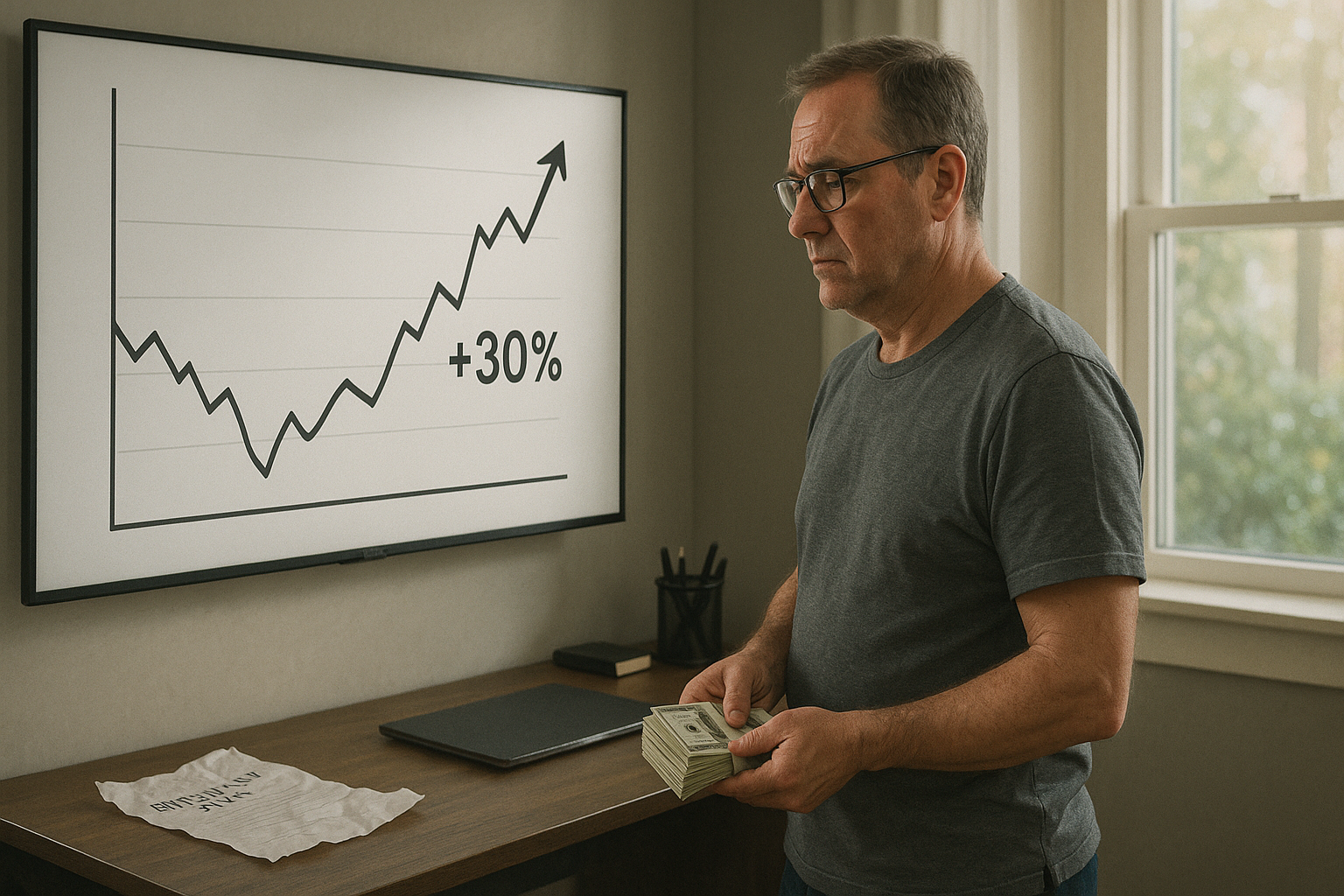I was talking with a financial advisor friend last week when she mentioned something that stuck with me: "Half my job is just keeping people from selling at the wrong time."
That conversation came rushing back to me when I read about an investor who bailed on markets earlier this year—and missed out on a 30% rally as a result. Ouch.
It's a scenario I've seen countless times covering personal finance over the years. Someone sells because they're convinced "this time is different," only to watch from the sidelines as their former investments march steadily upward without them.
This particular case? A textbook example of what happens when emotions hijack our financial decision-making.
The investor liquidated about $100,000 in two chunks—half in February during a dip (always a questionable move) and most of the rest in May. Had they just left it alone, that money would be worth around $130,000 today.
That's thirty grand. Gone. Poof.
What's fascinating isn't just the missed gains but the psychology behind the decision. The investor initially worried about needing cash for legal expenses—a legitimate concern! But then... well, markets kept bouncing around, and it just felt... exhausting.
"Wasn't in a place mentally to handle that kind of rollercoaster," they admitted.
Look, I get it. Market volatility is brutal on the psyche. Anyone who claims they sleep perfectly well during 20% drawdowns is either lying or lacks imagination.
But here's where it gets really interesting (and a bit tragic): By the time this person made their second sale in May, the original concern about needing cash had already resolved itself. The selling had become a habit, a psychological framework where bailing seemed like the right move even when the original justification had disappeared.
It's what behavioral economists call "path dependency"—where your past decisions create a momentum that carries you forward even when circumstances change.
(I once interviewed a Nobel-winning economist who described this as "the way our brains create stories to justify what we've already decided to do emotionally." Pretty spot-on for this case.)
So what do you do if you find yourself in similar psychological quicksand?
For starters, separate your damn money by time horizon. Cash you might need in the next few years has no business being in volatile assets. Period. Full stop. This isn't revolutionary advice, but it's amazing how many folks ignore it.
Then—and this part is crucial—write down your investment strategy BEFORE markets get choppy. I've found that having something in black and white to re-read when your palms are sweaty can be the difference between staying the course and making a $30,000 mistake.
What's the real lesson here? It's not just about missed gains. It's that we don't just pay for our financial decisions... we pay for our emotions about our financial decisions.
And sometimes, that's one expensive therapy session.
As another advisor I know puts it: "The market is the most expensive place to find out who you are." This investor just paid $30,000 for that information.
Was it worth it? Maybe. Some lessons have to be learned the hard way.
For the rest of us? Let's try to learn it for free, shall we?
